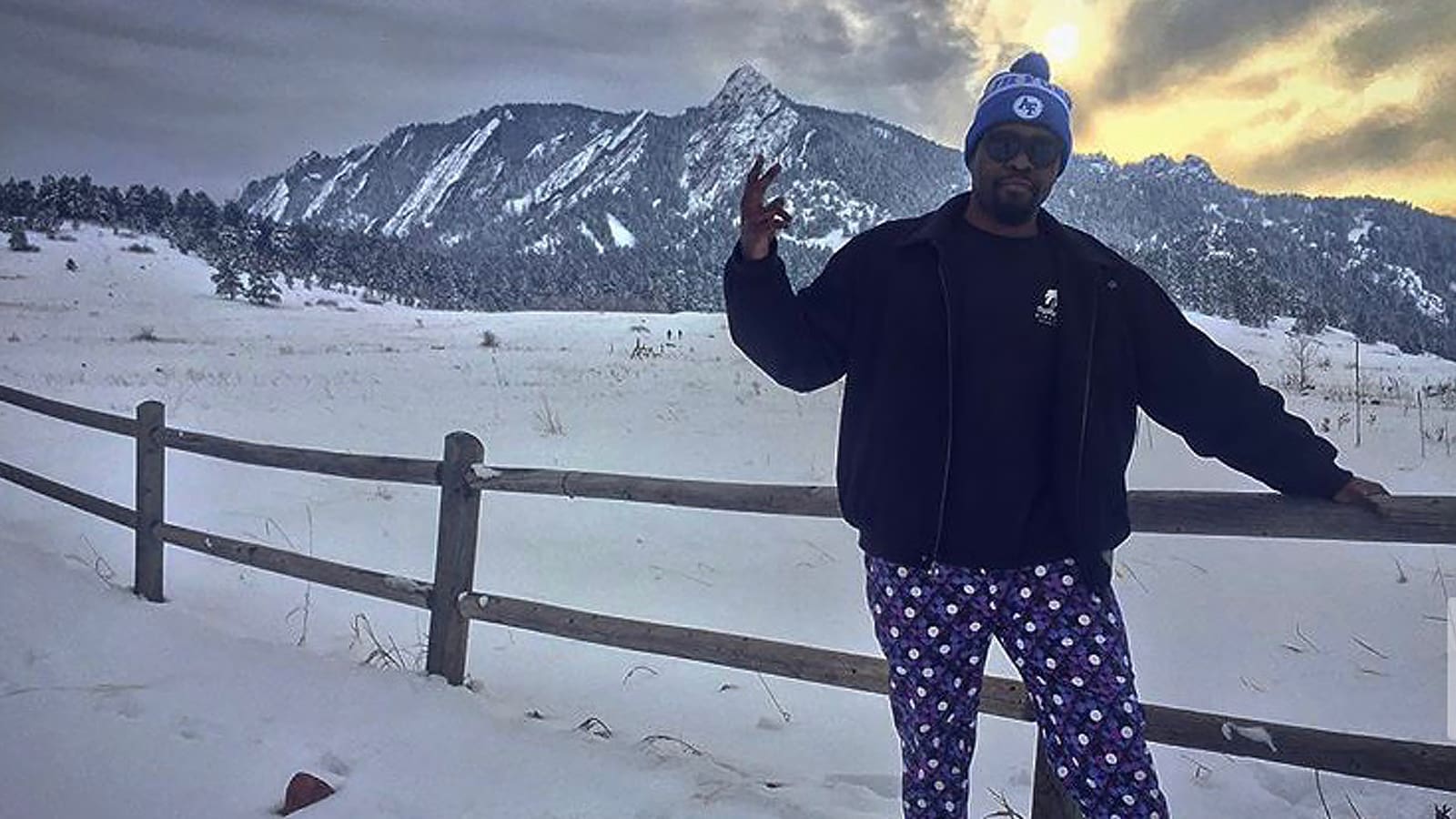
Get stories and expert advice on all things related to college and parenting.

My favorite part of college (no doubt most people’s favorite part) was meeting people from many different walks of life. Exchanging stories of our different experiences, or sometimes experiences we had in common, was so special.
Recently I had an opportunity to do just this, with a new friend met through old college friends. Jabree opened my eyes to a whole new perspective and taught me so much simply by telling me about his life.
Though we talked a lot about activism (the main subject of our conversations), he also shared his approach to life as a whole. His open and honest communication was inspiring, especially considering how much he risks by putting his whole self out there for the world to see.
As someone who faces discrimination and prejudice for multiple facets of his identity, Jabree has developed an admirable approach to life, which he carries into his activism and every interaction he has. He describes it as his "strategy" (an analogy to chess), and it’s largely based on his adaptability, which he feels is the reason he's able to find happiness everywhere. He also consciously commits himself to being respectful and honest — he sticks to his convictions and beliefs, but has learned to adjust his delivery based on his audience.
I was very grateful that I got to meet and talk with him. It definitely helped me broaden my horizons and deepen my understanding of life — as do most of my interactions with new people.
Looking for a big change, Jabree chose to move to Colorado after spending most of his life in Birmingham, Alabama. He had faith in his ability to adapt and was eager to experience a new environment.
After spending some time at the Air Force Academy where he played football, it was decided the military hadn’t been the best choice and he transferred to the University of Colorado at Boulder to study Economics — once again putting himself in an unfamiliar place and trusting his adaptability to help him succeed.
I asked if he'd had qualms about making such big changes (as that sort of thing tends to give me anxiety personally), but in his eyes there'd been no reason to worry — he knew himself well enough to know he'd be fine. At CU Boulder, he jumped right in, attending events held by the Black Student Alliance, Cultural Events Board, and various other organizations on campus. “College is going to be a completely new environment," Jabree said, "and so [students] must take who they are and adapt as it's a chance for them to embrace themselves.”
Jabree trusted that his family had instilled the right values and that those would be enough to help him integrate into the community. He prides himself on having many different experiences, which he uses to find common ground with everyone he talks to — relating to them and being relatable for them. He believes that everybody’s life choices and philosophy deserve to be respected, provided we're willing to accept that sometimes our assumptions might be wrong. He stresses adaptability as the centerpiece of human interaction because without it, we lose the ability to empathize and understand one another.
As a Black LGBTQA+ individual, Jabree faces a lot of preconceptions. He played football for a long time and still appreciates a good workout; at over six feet tall, he’s a big guy. When people see him, they might make automatic assumptions — he's labeled in their minds as a "tall, large Black guy."
When meeting someone new, he chooses not to quickly volunteer that he is gay but he doesn't hide it either. So usually there's a moment in the conversation when the other person realizes this somehow and it will generally warrant surprise. Where they were previously judging his actions and words according to preconceptions based on his size and race, he can see them processing this new information and reevaluating him.
He sees that as a cool experience. "They think about all the actions and they see that I'm a different person so it's kind of like I brought them out of one mindset and opened their minds to what something could be."
He hopes people will remember that no one should be categorized as just one thing, because nobody is just one thing. We're all made up of all our different experiences, and when we meet new people we shouldn't make automatic assumptions about who they are, what they’re like or what they can do.
Because he’s experienced firsthand the effect of this kind of bias, Jabree commits himself to being open and loving to everyone he meets while also being as authentic as possible.
We talked about how people need to be wary because aggression can easily derail a conversation that’s meant to be educational for the participants. Jabree is fully aware that his stature as a larger Black male unfortunately means he's likely to be blamed any time he's in a heated situation.
And that's ironic because he deeply believes that aggression degrades the person it's aimed at and their viewpoint. He urges people not to belittle somebody else simply because they don't agree with you. Even if you're championing a cause, it's completely counterproductive to minimize or demonize somebody else’s cause simply because it is not yours.
At the end of the day, we’re all fighting for human rights in our own way and there is always an opportunity for compassion and empathy.
Although Jabree personally disagrees with aggression, he sees how people can become frustrated by the lack of change brought about by peaceful tactics and turn to aggression. He described this to me as the difference between the ripples caused by dropping a pebble into a pond and the waves of a storm at a sea. Impatient with the minuscule changes caused by a ripple, people instead seek the satisfaction of a sea storm.
Believing it's possible to cause a sea storm without violence, he encourages us to shift our perspective. If we create ripples and make waves sometimes, if we have the opportunity and we want to, we can create a storm, too. For him, creating a storm may simply mean choosing better and more assertive words to make his point, because if you can just find the right words, you can make your point stronger and create that storm. You simply need to have faith that every change counts, and work to understand everyone’s ideology in order to find some middle ground.
I walked away from our conversations with a better perspective into activism and a renewed faith in the power of little changes. It was also a healthy reminder that we should be aware of our tendency to compartmentalize people so we can avoid doing this. People are never going to fit into convenient boxes or boundaries, because we are all adaptable and constantly changing. And because we are all constantly changing, we can make a conscious effort to invite change when we talk to each other.
Every new person is another opportunity to grow and learn, if you simply approach your interactions with empathy and respect.
